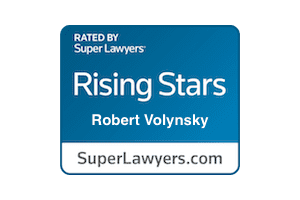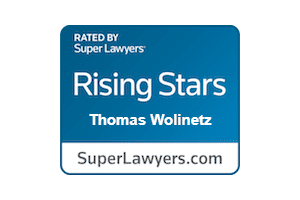



The federal securities rules define the obligations of both brokers and the brokerage firms that employ them. The rules were drafted in part to protect investors from financial harm. One of the duties imposed on brokerage firms is the duty to supervise any broker whom the firm employs to make sure that the broker’s professional conduct complies with the law. Thus, if an investor is harmed by broker misconduct, the broker’s employer may be liable for the broker’s transgressions.
If you sustained financial losses because of a broker’s intentional or reckless acts, it is essential to consult a proficient securities attorney to determine who may be held liable for your harm. Schedule your consultation by calling (877) 905-7671.
Financial Industry Regulatory Authority (FINRA) Rule 3010 specifically imposes a duty on brokerage firms to supervise any brokers whom they employ to make sure that the brokers are acting in compliance with securities regulations and laws. Thus, under Rule 3010, a brokerage firm may be held accountable for any intentional or negligent acts that the broker undertakes that are detrimental to investors. Furthermore, brokerage firms have a duty under the Securities Exchange Act of 1934 to supervise brokers to prevent securities law violations. The Securities Exchange Commission has stressed that a brokerage firm’s duty to supervise brokers through established procedures is critical to protecting investors.
If a broker commits misconduct, the investor harmed by the misconduct may be able to pursue a failure to supervise claim against the brokerage firm that employs the broker, in addition to pursuing a claim against the broker. In large part, claims against brokerage firms for a failure to supervise arise out of the firm’s failure to ensure that a broker provided investors with sound advice. For example, brokerage firms have a duty to conduct due diligence on any investment that a broker recommends, prior to offering it to investors.
Additionally, brokerage firms have a duty to ensure that any securities that a broker sells were evaluated by the firm and are on the firm’s approved products list. When a broker sells securities that are not offered by their brokerage firm, this is called selling away, which is explicitly prohibited by FINRA Rule 3270. Furthermore, securities that are not on a brokerage firm’s approved list have not been subjected to the due diligence process, and the risks of such investments are unknown.
Brokerage firms in New York and nationwide also must make sure that any investments that a broker recommends are appropriate to meet the client’s needs. This standard, which is imposed by FINRA Rule 2111, is known as suitability. The suitability rule requires a broker to assess an investor’s investment goals, age, financial status, and risk tolerance to determine appropriate investments.
The broker must also convey to the client any potential risks and rewards associated with an investment. If a broker fails to meet the suitability standard, the brokerage firm that employs the broker may ultimately be held liable for the harm caused by the unsound investments.
If you suffered financial losses due to a broker’s inappropriate investment advice, you should consult a skillful securities attorney to discuss your options for seeking damages.
Fill out the form below or call 877-905-7671 to schedule your free consultation
By Appointment Only
5 N Village Ave 2nd Floor
Rockville Centre, NY 11570
By Appointment Only
9171 Wilshire Blvd #500
Beverly Hills, CA 90210
Attorney Advertising | Prior results do not guarantee a similar outcome. The information on this website is for general information purposes only. Nothing on this site should be taken as legal advice for any individual case or situation. This information is not intended to create, and receipt or viewing does not constitute, an attorney-client relationship. This site is protected by reCAPTCHA and the Google Privacy Policy and Terms of Service apply.